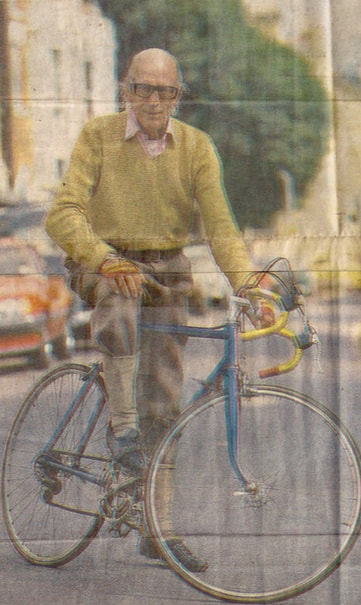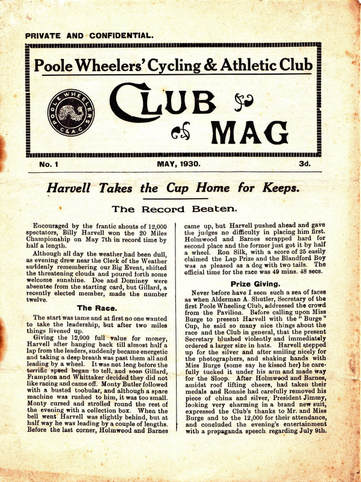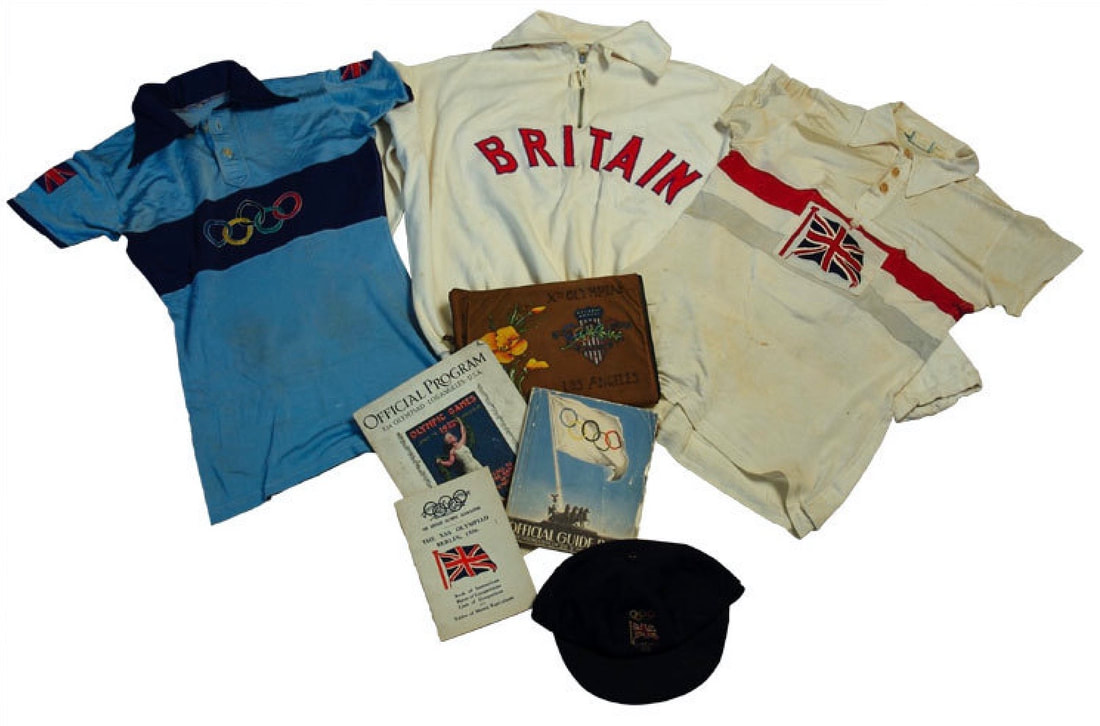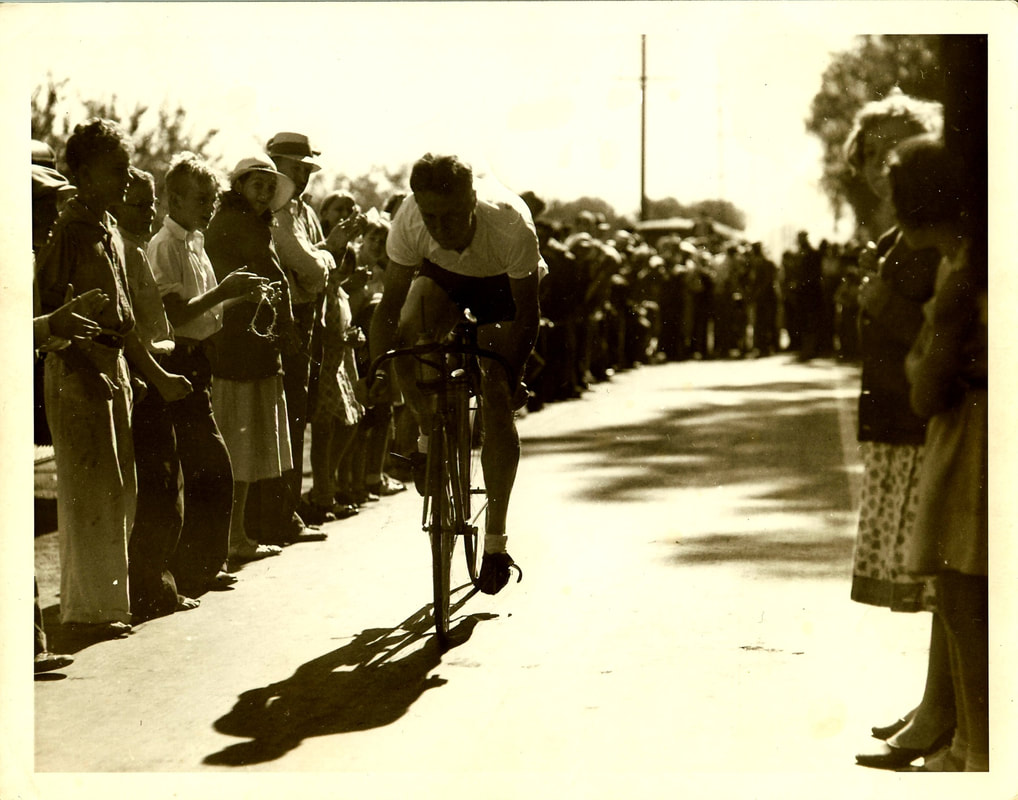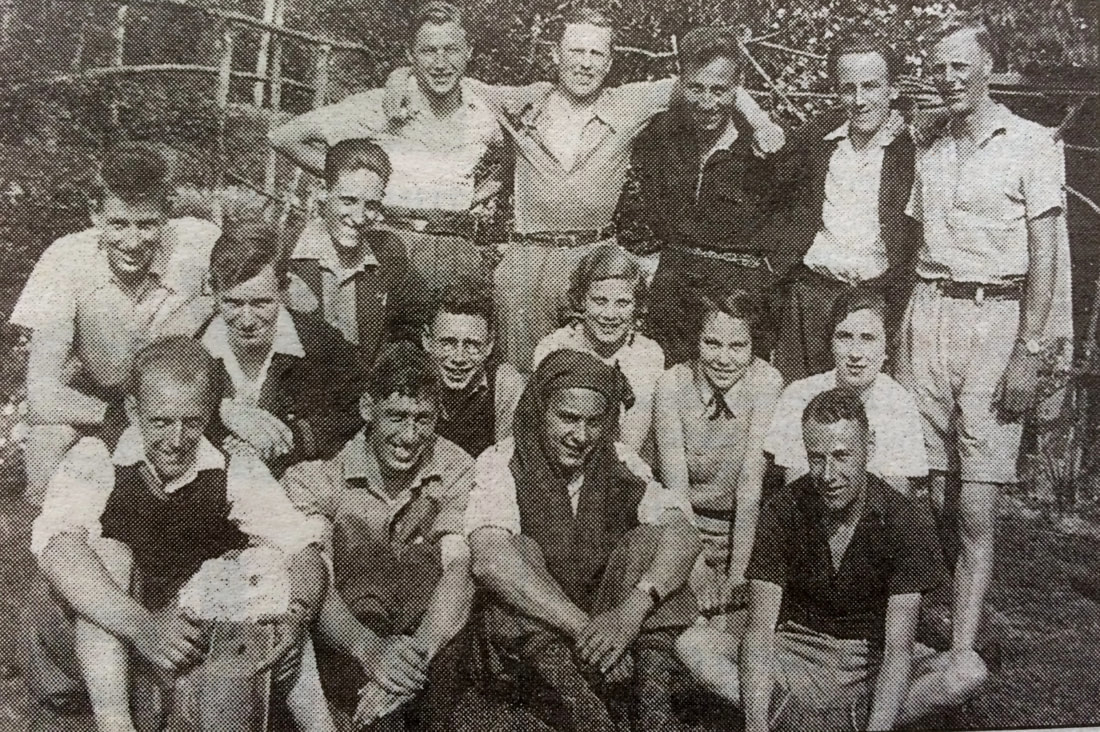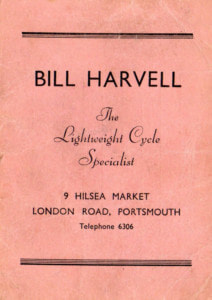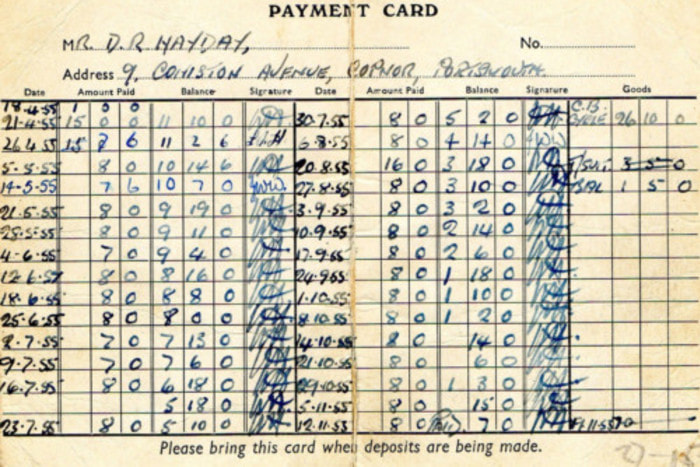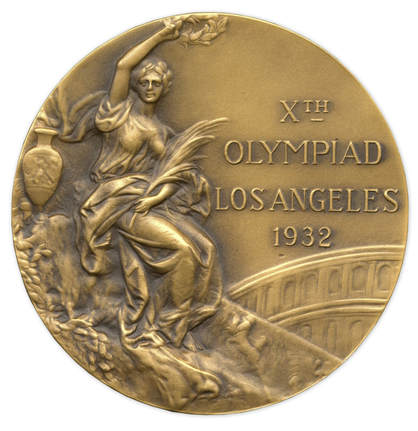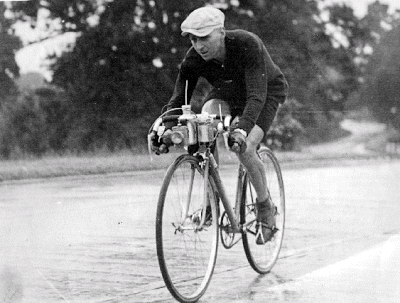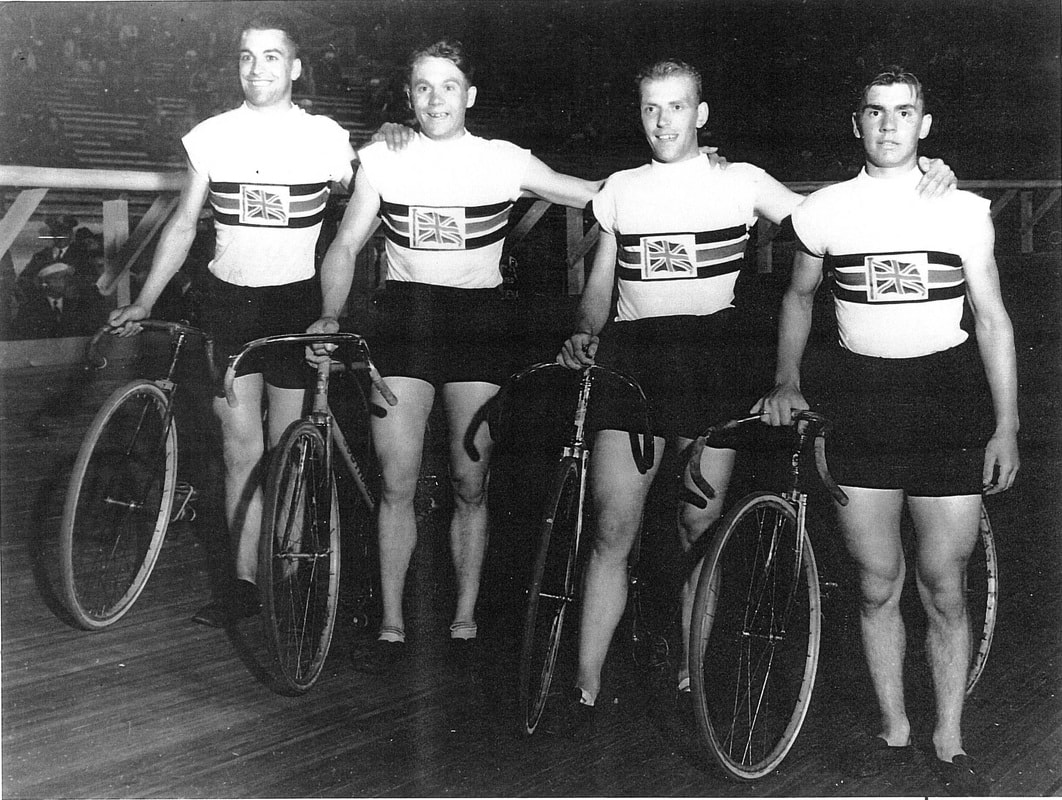 Britain's 400m Team Pursuit Team at the 1932 Los Angeles Olympic Games. From L to R - Charlie Holland, Frank Southall, Bill Harvell & Ernest Johnston. The Italians - Marco Cimatti, Paolo Pedretti, Alberto Ghilardi and Nino Borsari - won Gold medals with 4min 53s, having set an Olympic record of 4min 52.9s in the heats. France won Silver with 4min 55.7s. & Britain won bronze with 4min 56s. It was at the Dorset Constabulary Athletics meeting on Wednesday 26th June 1935 that Marguerite Wilson made her cycling debut by winning the Ladies one mile Grass-track Handicap. Star attraction that day was Poole Wheeler’s Olympian, Bill Harvell. Two years earlier he had won a Bronze Medal at the Loss Angeles Olympic Games. This must have made an impression on the 17 year old sports mad Bournemouth girl who as a schoolgirl had dreamed of representing her country in the Olympic games. She and Bill were later to become lifelong friends.
Here follows an account of the 1930 race published the first edition of the Poole C & AC club magazine. ‘Encouraged by the frantic shouts of 12,000 spectators, Billy Harvell won the 20 Miles Championship on May 7th in record time by half a length. Although all the weather had been dull, as evening drew near the Clerk of the Weather suddenly remembering our Big Event, shifted the threatening clouds and poured forth some welcome sunshine. Doe and Dominey were absentee from the starting card, but Gillard, a recently elected member, made the number twelve. The Race - The start was tame and at first no one wanted to take the leadership, but after two miles things livened up. Giving the 12,000 full value for money, Harvell after hanging back till almost half a Prize Giving - Never before have I seen such a sea of faces as when Alderman A. Shutler, Secretary of the first Poole Wheelers Club, addressed the crowd from the Pavillion. Before calling upon Miss Burge to present Harvell with the ‘Burge’ Cup, he said so many nice things about the race and the club in general, that the present Secretary blushed violently and immediately ordered a larger size in hats. Harvell stepped up for the silver and after smiling nicely for the photographers, and shaking hands with Miss Burge (some say he kissed her) he carefully tucked it under his arm and made way for the Sloop. After Hollywood and Barnes, amist roof lifting cheers, had taken their piece of china and silver, President Jimmy, looking very charming in a brand new suit, expressed the Club’s thanks to Mr and Miss Burge and the 12,000 for their attendance’. Teammate Charlie Holland's memorabilia from the 1932 Los Angeles Olympic Games. Brooklands Motor Museum collection. 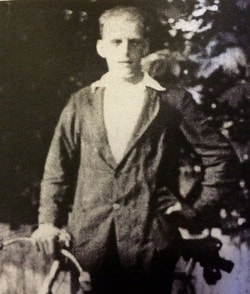 Bill was selected to ride in the 1932 Los Angeles Olympic Games. This was during the great depression, the team was small, so Bill was called upon to compete in the 4000m team pursuit, the 1000m and the 100km road race (actually a time trial) all within the space of four days. Together with Frank Southall, Ernie Johnson and Charlie Holland, Bill won a Bronze Medal in the team pursuit. He came 4th in the 1,000m and 19th in the 'Road race'. All in the in the space of four days, or as Bill later put it with a smile, 'Three for the price of one'. ‘I was pleased with the Bronze medal but I cannot say I was anyway near to tears. I had experienced success quite often in National competition and coming third is really a consolation prize.’ Bill received a heroes welcome upon his return to Poole, he had brought the town to the worlds attention, the Mayor presented him with an illuminated address at the council's meeting later in the year. Read about cycling at the 1932 Los Angeles Olympic Games in my previous blog- '1932 Los Angeles Olympic Cycling' published June 16- use the archives link above. In 1933 Harvell lead the Poole Wheeler's team (Norman Barnes, Ray Cleal and Ernie Hollywood) to victory in the National Team Pursuit Championship at Herne Hill. In 1934 he won a Bronze medal 10 mile Scratch at the British Empire Games whose track events were held in Manchester. Poole Wheelers Club Run 1933. Top row (L to R) unknown, Reg Mullins, Aubrey Jenkins, Ernest Bridle, George Butler, Cyril Crouch. Middle row- Harold Crib, Bill Middle, George Butler, Percy Old, Doris Maddox, Topsy Emery (later rode in the Bournemouth Arrows Ladies Team with Marguerite Wilson), Kit Turner. Bottom row - Bill Harvell, Jack Hetherington, Ted Cake, Walter Paget. In 1935 he returned to his native Hampshire and his original club, the Southampton Wheelers cc, his last competitive ride was at the 1939 Boscombe Carnival grass track meeting. Bill had been a Poole Wheeler during the peak of his glittering career, a life member, he always took an interest in his old club and in the early 1970s returned to Poole Park to ride a lap of honour. Bill ran a bike shop in Hilsea near Portsmouth for 37 years, from 1937 until 1974. He specialised in lightweight racing bikes, in particular Rotrax. Described as warm hearted, interesting and welcoming he did valuable work in bringing along youngsters who showed promise in the sport. In 1984 he was interviewed by a local newspaper. Age 76, Bill was still going out for an occasional ride along the seafront from his home in Southsea. In his a flat he was surrounded by mementos of his glittering cycling career . Among the most cherished were the Olympic Bronze and a British Empire Games medals, saved from the blaze that sadly destroyed the Hilsea bicycle shop in 1974. He died in his sleep a year later age 77. I would like to acknowledge and thank the following people for help in preparing this article:
George Bolton, Roger Watts, Don Booth, Eric Watts.
2 Comments
Patrick C Lockyer
27/11/2017 18:47:46
Where is Marguerite Wilson: The First Star of Women's Cycling book available? Have tried Waterstones and Amazon but none stocked.
Reply
Mike Johnson
5/1/2019 00:32:46
Excellent blog! I found this after a quick search for info on Bill Harvell, as his old shop sign was revealed on the Rotrax shop at 132 Shirley Rd in Southampton. His name, W. HARVELL. is in bold block type, white on post box red. I'm not sure why there is no Rotrax sign? Anyway, as the shop became Rotrax in 1945 I assume the Harvell sign is older, probably pre war.
Reply
Your comment will be posted after it is approved.
Leave a Reply. |
